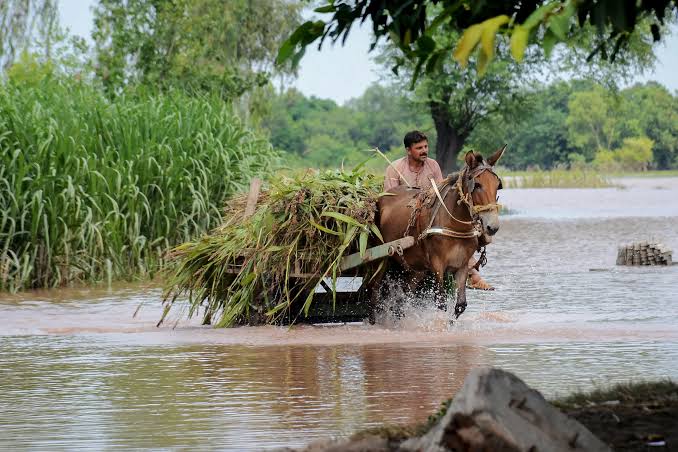Severe flooding in Punjab has caused major damage to Pakistan’s agriculture sector, with reports showing that almost 30% of the nation’s wheat reserves have been destroyed.
This disaster is expected to create a big challenge for food security, as flour prices may rise sharply, making it harder for millions of families to afford basic meals.
Punjab is often called the “breadbasket of Pakistan” because it produces the largest share of the country’s wheat. However, with widespread flooding submerging storage facilities and destroying standing crops, both farmers and mill owners are suffering heavy financial losses.
Farmers are now left struggling to recover their livelihoods, while millers worry about meeting the demand for flour in the coming months.
Experts warn that this crisis could lead to a sharp increase in wheat imports, which may further strain the country’s fragile economy.
Pakistan already faces rising inflation, and an increase in food prices could place additional pressure on ordinary citizens. For many low-income households, bread is the most essential food item, and any shortage could lead to serious difficulties.
Authorities are being urged to take emergency steps to address the crisis. Measures such as providing financial assistance to farmers, ensuring the quick restoration of storage facilities, and carefully managing wheat supplies are seen as urgent needs.
Without immediate intervention, Pakistan may face not just higher flour prices, but also a potential shortage that could impact millions of people nationwide.
The floods have once again highlighted how vulnerable Pakistan’s agriculture sector is to natural disasters, and the urgent need for stronger disaster management strategies.


